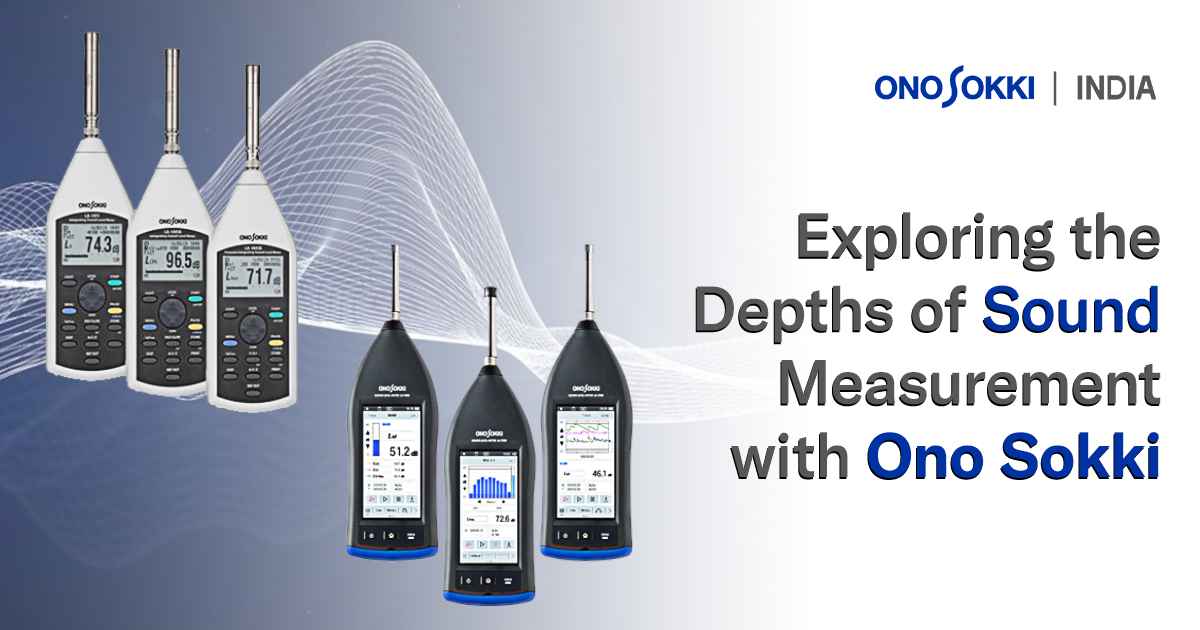



Ono Sokki is a renowned company specializing in sound measurement instruments and systems. With a rich history and expertise in the field, Ono Sokki offers a wide range of high-quality devices that enable precise and accurate sound measurement across various applications. Sound measurement plays a crucial role in several industries, including environmental monitoring, industrial noise control, product testing, and acoustic research. Ono Sokki’s instruments are designed to meet the diverse needs of professionals in these fields, providing them with reliable tools for gathering and analyzing sound data. One of the fundamental parameters in sound measurement is sound pressure level (SPL), which represents the magnitude of sound waves. Ono Sokki offers sound level meters that allow users to measure SPL with precision. These meters often incorporate advanced features such as frequency weighting, time weighting, and octave band analysis to provide a comprehensive assessment of sound characteristics. In addition to sound level meters, Ono Sokki produces sound analyzers that enable in-depth analysis of sound signals. These analyzers typically offer a wide range of measurement capabilities, including spectral analysis, frequency response analysis, and sound intensity measurement. They are commonly used in fields like audio engineering, automotive testing, and architectural acoustics.
Advancements in wireless technology have enabled the development of sound measurement systems that can be remotely operated and monitored. This allows for greater flexibility in data collection and monitoring in various applications and environments. The integration of Sound Testing devices with IoT technology has opened up new possibilities in data acquisition, analysis, and real-time monitoring. IoT-enabled sound measurement systems can provide continuous data streams, remote access, and enhanced connectivity for efficient monitoring and control. AI and machine learning algorithms are increasingly being utilized in sound measurement to enhance data analysis and pattern recognition. These technologies enable automated identification of sound sources, intelligent noise control systems, and advanced data processing for more accurate and efficient sound measurements. Virtual and augmented reality technologies are being applied to sound measurement, enabling immersive audio simulations and acoustic modelling. These advancements provide a more realistic and interactive approach to analysing sound environments and designing acoustic spaces. Sound measurement systems are now capable of simultaneously measuring multiple parameters, such as sound pressure level, sound intensity, frequency analysis, and reverberation time. This integrated approach allows for a more comprehensive understanding of sound characteristics and their interactions.
Ono Sokki is a leading provider of Sound Level Meter instruments and systems, offering a comprehensive range of tools that enable professionals to explore the depths of sound measurement. The significance of sound measurement lies in its ability to provide objective and quantitative data about sound waves and their characteristics, impacting various industries and applications. No Sokki’s sound level meters, sound analyzers, and vibration meters offer precise and reliable measurements, allowing professionals to gather comprehensive data and insights. These instruments incorporate advanced features such as frequency weighting, time weighting, and spectral analysis, empowering users to delve deeper into sound phenomena and make informed decisions based on accurate measurements. The industrial applications of sound measurement are vast and diverse. Ono Sokki’s instruments find utility in environmental monitoring, occupational health and safety, product testing and quality control, machinery diagnostics, process control, structural health monitoring, and automotive testing, among others. By providing reliable measurement solutions for these applications, Ono Sokki contributes to enhancing environmental sustainability, ensuring workplace safety, optimizing product performance, and improving overall industrial processes.